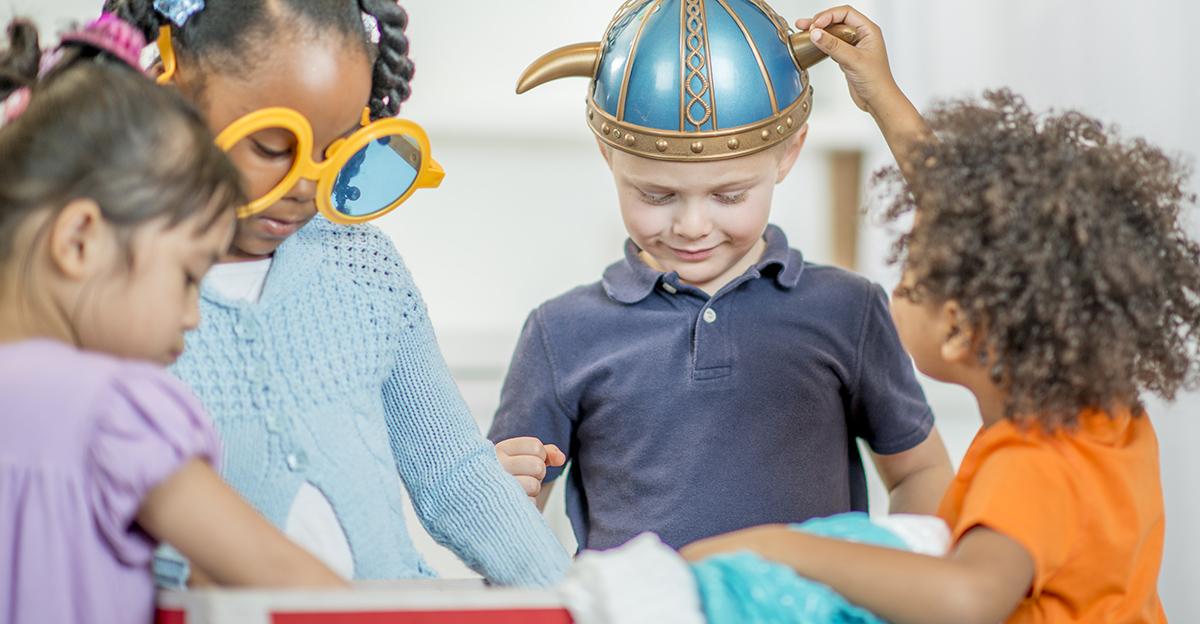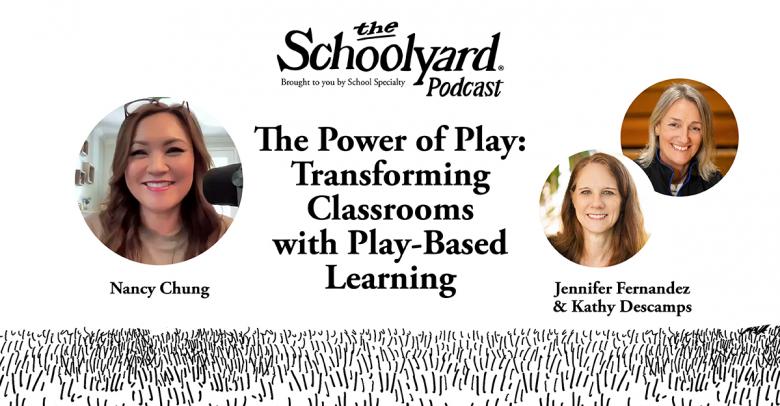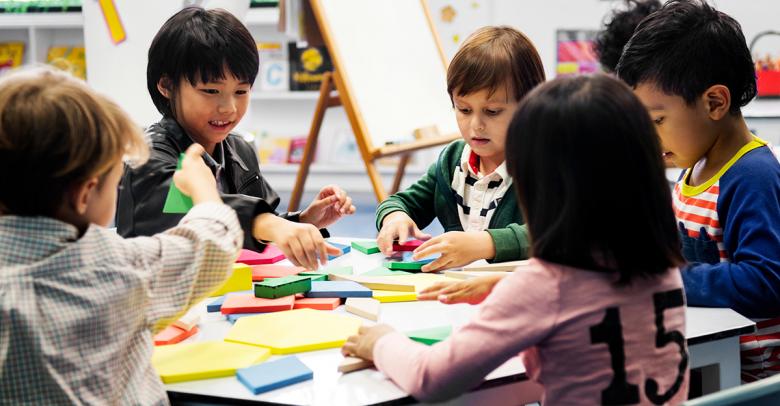Dramatic play is a critical part of any developmentally appropriate early childhood education program. Young children learn best through play. By giving children time to engage in imaginative play, you can create an environment where children are excited to learn. These ideas for dramatic play can be integrated into your curriculum in various ways and used to enrich many common areas of study for young children.
Using Dramatic Play for SEL, Math, and Literacy in Early Childhood
Social Emotional Learning (SEL)
The benefits of dramatic play are great for children to learn empathy and explore their feelings while interacting with others. Creativity and problem-solving come into play as they communicate with each other.
1. Role-play with dress-up
Stock your dramatic play area with tools and dress-up supplies to allow children to take on the roles of common community helpers like doctors, police officers, and firefighters. This will allow the children to explore the roles these people play in their own experiences. As a teacher, you can gain insight by observing them at play to see their feelings about themselves and the world around them.
2. The right setting for role-playing
Role-playing through common life situations helps children make better sense of their families, communities, and our world. Providing a puppet theatre or kitchen area that mimics home life allows a child to explore their feelings and give them control over their own identity. This meets the goals of common early childhood social emotional learning expectations. Students learn about their place in the world and their feelings about who they are.
Math
Dramatic play can have a role in teaching early childhood math concepts such as shapes, numbers, counting, and simple addition and subtraction.
3. Count on learning with a grocery store
Set up your dramatic play area to resemble a grocery store. Children can count play food items, play coins, and match numbers of coins to the prices listed for certain foods. Older children can use a play cash register to practice adding numbers of coins for purchases.
Language Development & Literacy
Dramatic play is a great tool to encourage children to verbally interact together. Children learn from each other through play, and those who need help with language will benefit greatly from time spent with dramatic play.
In addition, basic reading skills such as sight words and letters can be supported with labels and signs integrated into dramatic play areas. By incorporating signs, you create a print-rich environment that is shown to greatly contribute to early childhood literacy skills.
4. Play restaurant
Have children take on roles like a restaurant server who “writes” orders down or “reads” a menu. This can make reading skills meaningful to young children while boosting their recognition of words and letters. These games also help students build skills in negotiation and collaboration and improve receptive and expressive oral language skills. Children also learn the importance of taking turns and sharing through dramatic play, all while having fun with others.
5. Dramatic play stories
Develop language skills by asking young children to “journal” or tell stories about what they did in a dramatic play area. They can draw a picture, share a story during circle time, or tell a story with puppets driven by their imagination and experiences. These stories can be the building blocks that inspire a love of reading.
More Early Childhood Inspiration & Ideas
Your early childhood program can incorporate many different learning opportunities through dramatic play. Whether you set up a play kitchen with furnishings, dishes, and play food or a puppet theatre with multicultural puppets, new ideas for your dramatic play area can enable children to engage in imaginative learning.






Leave a Reply